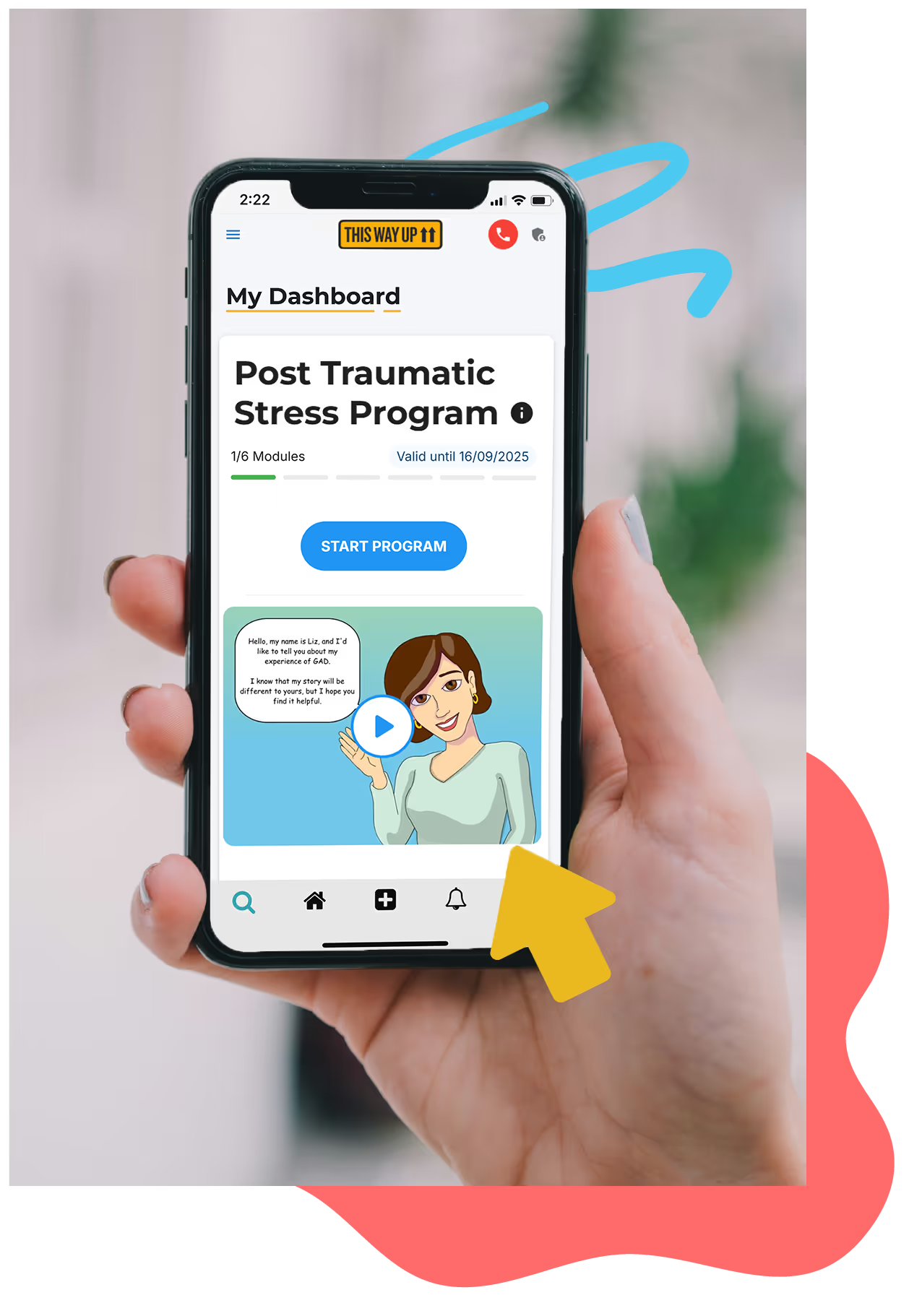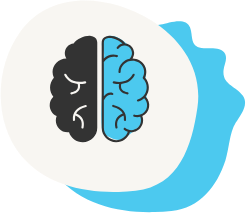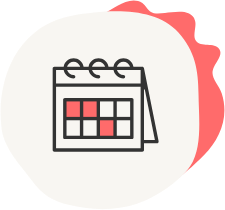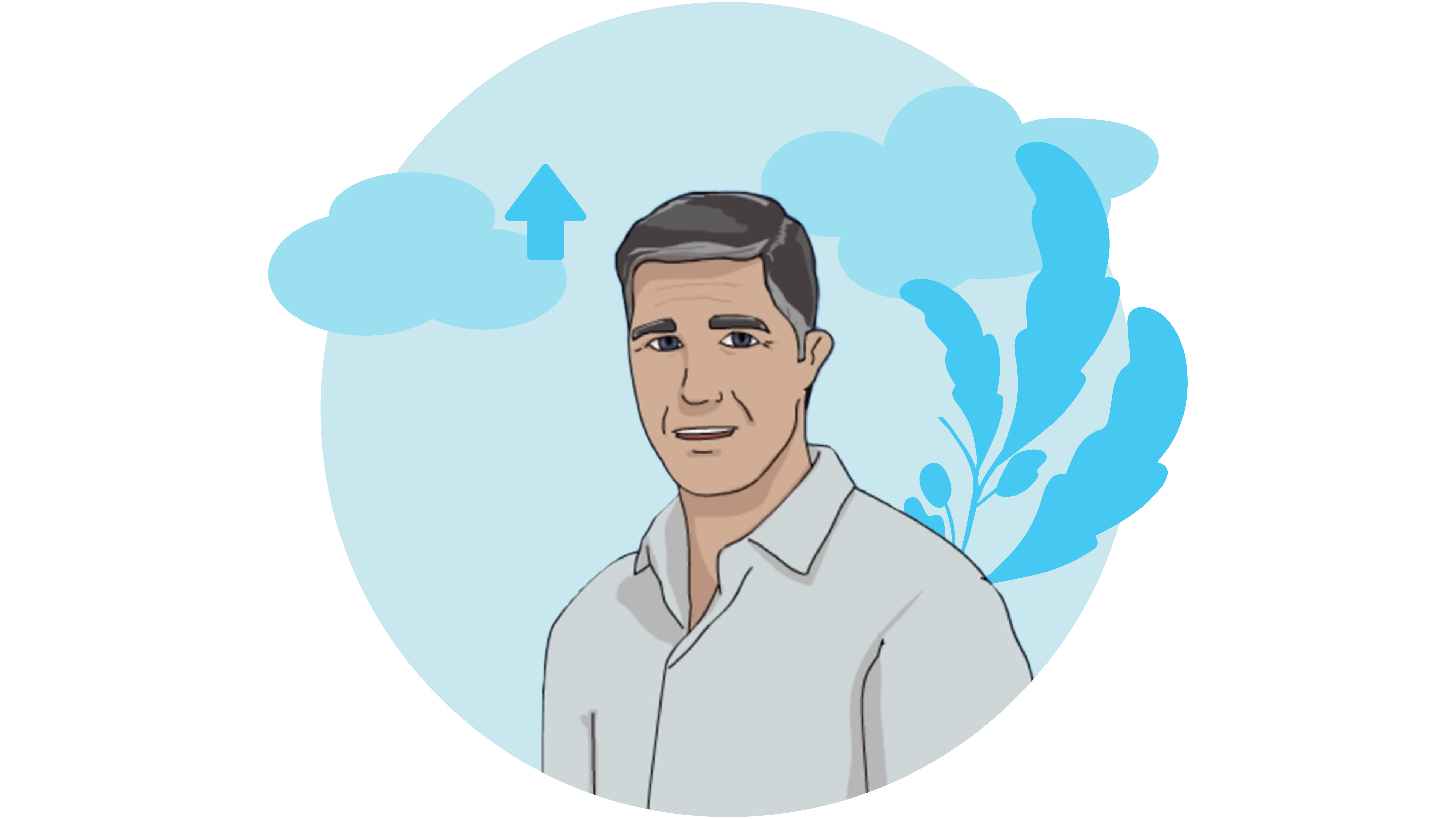Post-Traumatic Stress
Post-Traumatic Stress (PTS) can develop after experiencing, witnessing, or learning about a traumatic event involving actual or threatened death or serious injury. People may struggle with distressing memories, avoid reminders of the event, and can experience intense anxiety, sadness, or anger that significantly impacts their life.

Fortunately, PTS is highly treatable, and many people who seek help improve significantly. Our PTS treatment program uses Cognitive Behavioural Therapy (CBT), providing practical skills to manage symptoms, break negative cycles, and help you feel better.
What to expect
Format: Eight online modules with five-day breaks between each one
Duration: Self-paced over 120 days, with extension option if needed
What's included
Story-based modules that teach core coping skills
Exercises designed to help you tackle your symptoms
Practical Action Plans to apply your new skills in daily life
Email and text reminders to keep you on track
Questionnaires to help you monitor your wellbeing
This program is based on established clinical practice guidelines and has been proven effective in our research trials.
Are you ready?

Ready to try something new?
Try our clinically proven CBT-based approach to improve your mental health

Ready to learn?
Start learning practical skills to help you manage your symptoms and feel better

Ready to commit?
Dedicate just 20 minutes, three times per week, to improving your wellbeing
How to get started
To enroll in this program, speak with your clinician (e.g., your GP, psychologist, or other health professional), and see if they can prescribe you this program and monitor you throughout your online treatment.
Download and take this letter to your appointment

Not sure if this treatment is for you?
Take our short Wellbeing Test to receive a treatment program recommendation or view our other popular programs below.
Start Test
Generalised Anxiety
Do you often feel nervous, worried or tense about a range of different things?

Mindfulness
Do you want to improve your ability to stay present and boost your wellbeing by learning mindfulness skills?

Insomnia
Do you suffer from lack of sleep or poor sleep quality, and has this been going on for a while?
Who will find this program helpful?
People who have experienced a traumatic event and are significantly troubled and distressed by their memories of the event.
Will this program help me with childhood trauma?
This program was written for people who have experienced or are experiencing post-traumatic stress in response to a traumatic event in adulthood, rather than a series of traumas experienced earlier on in their development (complex trauma or cPTSD). For people looking for help with childhood or complex trauma, we suggest you seek individual therapy from a mental health clinician who is experienced in this area. You can see your GP for a referral.
Why is clinician support required for this program?
We recognise that addressing trauma can be very distressing. Having a clinician supervise your progress will provide you with an added layer of support, particularly as some treatment components may be triggering.
How much does the program cost?
This program is free to enrol in under the guidance of your clinician. It is only available for enrolment under clinician guidance.
What other help is available for my symptoms?
The best place to seek advice about treatment options for your specific symptoms and situation is from your GP. Click here for more information.
How long does the program take?
The program consists of eight modules, and it's recommended to complete one module every 1-2 weeks, allowing time to practice the skills learned.
By submitting this form I agree to the THIS WAY UP Terms of Use and Privacy Policy.





